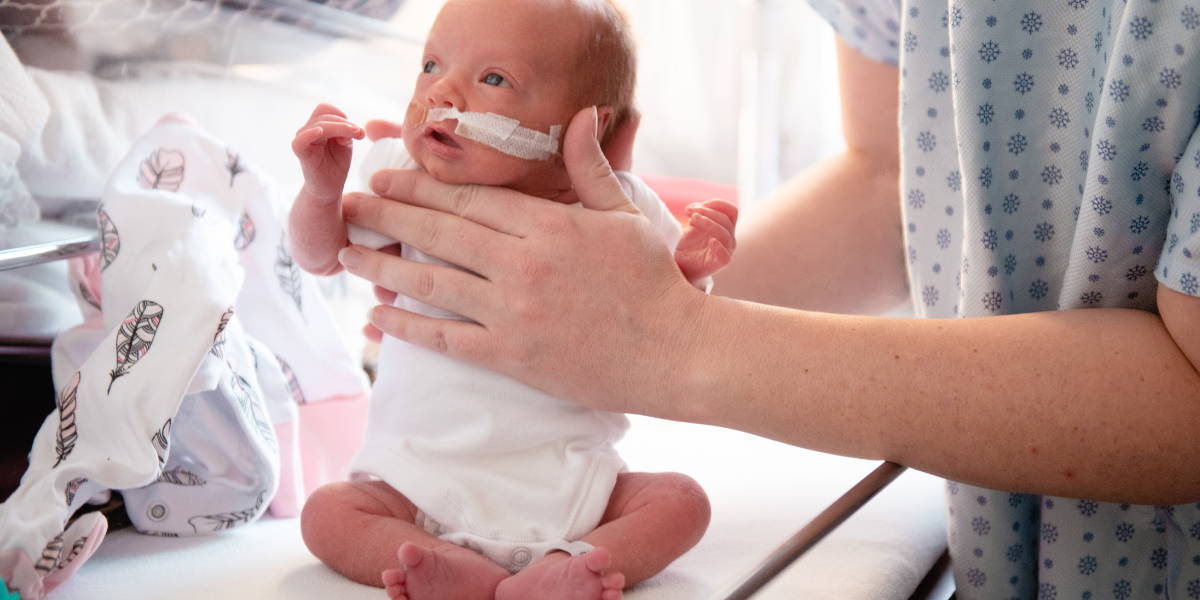
It used to be quite dire for any babies born before 28 weeks. Now “with 26-weekers they’re not only surviving but thriving,” says Obstetrician Dr. Mark Rosengarten, who has seen a lot of progress in his over 25 years at BC Women’s.
“The technology and the resources that we have, and the faculty that we have available for preemies, newborns or sick infants has improved dramatically,” he says.
With well-over 7,000 babies born here each year, BC Women’s is one of the largest maternity hospitals in Canada. We also serve some of the neediest, says Rosengarten, “We accept some of the most complex and high-risk medical situations.”
The journey to a healthy baby starts with a healthy mom, says Rosengarten. “We have the technology and the medical expertise to provide the highest level of care to moms facing a range of medical complications in their pregnancies.”
Other times intervention needs to take place within the womb. BC Women’s is one of the few hospitals in North America that can perform laser procedures on undelivered pregnancies. “We actually do a lot of invasive prenatal surgery,” he says, such as “the twin to twin transfusion syndrome program where if there is a connection between twins (and one is failing to thrive) we can actually separate them.”
We’re also excelling in new studies, with a team of some of the smartest researchers that will undoubtedly change the future of healthcare, says Rosengarten, such as the Maternal Microbiome LEGACY Project, which is researching the link between infants born by caesarian section and an increased risk of conditions such as asthma, celiac disease and allergies.
But it’s not always about advancement. “Everything we do is evidence-based and has mom and baby at the centre of our care, he says, and to do that “we’ve taken a few steps back, which is a good thing.”
“When I started, it was common practice to cut the umbilical cord, separate mom and baby, and put the baby in the warmer as soon as it was born.” But evidence shows that’s not always best for baby or the mom, says Rosengarten. Now unless medical intervention is required newborn checks are delayed. “We’ve gone back to the beginning. Back to basics. Back to mom. Babies are delivered and they go skin to skin with mom. We call it the golden hour.” Even if babies need increased care, they make every effort to keep parents in the room with them.
“It’s the perfect combination of science, safety and compassion.”
Learn about the maternal and newborn health initiatives we’re funding right now.
-
Lauren’s Story
Through the loss of a pregnancy and the birth of a baby, the team at BC Women’s provided the emotional suppo...
Read more -
Making Strides For Women In Midlife
Women deserve care that is evidence-based and takes a lifespan approach. Women in midlife can experience a wid...
Read more -
Unlocking the future for babies with brain injuries in the BC Women’s NICU
For parents with a newborn in the Neonatal Intensive Care Unit (NICU), one of the hardest questions to face is...
Read more



